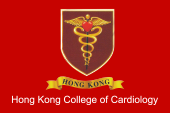Abstract
Background and Objectives: Recent studies have shown that biphasic shocks (BS) are more effective and require less energy than monophasic shocks (MS) in transthoracic cardioversion (TCV) of atrial fibrillation (AF). The recommended initial shock energy, using MS, is 200J for AF. This study aims to test the optimal initial energy for TCV of AF using BS.
Methods: Patients required TCV for AF from June 1, 2001 to June 30, 2002 were enrolled. Patients with persistent AF >48 hours received therapeutic anticoagulation (INR 1.5-2.5) for at least 3 weeks before TCV. Patients with recent onset AF <48 hours were cardioverted without anticoagulation. BS was used for all patients. A step-up protocol starting with 30J, with subsequent increments to 50, 100, 150 and 200J was used. Success was defined as the presence of at least 1 clearly visible P wave within 30 seconds after the shock. Failure was defined as completion of protocol without restoration of sinus rhythm.
Results: Twenty-seven patients (16 men and 11 women, mean age 63.0±13.7 years) were recruited. Thirteen had persistent AF and 14 had recent onset AF, of which 11 occurred during cardiac procedures including cardiac electrophysiology studies, radiofrequency catheter ablation, percutaneous coronary intervention and cardiac pacing. 96.3% (26/27) were successfully cardioverted. 92.3% (24/26) were successfully cardioverted with 100J or less energy. In patients with any one of the unfavourable factors including persistent AF of duration >48 hours, left atrial (LA) size>5.0 cm, left ventricular ejection fraction (LVEF) <50% or body weight (BW) >85 kg, 86.7% (13/15) were cardioverted with 100J or less energy. With none of the unfavourable factors, 81.8% (9/11) were cardioverted with 50J or less energy. There were no TCV related complications.
Conclusions: BS is both effective and safe for TCV of AF. For patients with any unfavourable factors of persistent AF, LA size >5.0 cm, LVEF <50% or BW >85 kg, 100J is the optimal initial energy. In the absence of these factors, a lower shock energy of 50J can be tried first.
Recommended Citation
Ngai-Yin Chan, Ngai-Shing Mok, Suet- Ting Lau, Yuen-Choi Choi, Optimal Initial Energy for Transthoracic Biphasic Shock Cardioversion of Atrial Fibrillation Journal of the Hong Kong College of Cardiology 2003;11(2) https://doi.org/10.55503/2790-6744.1147
Creative Commons License

This work is licensed under a Creative Commons Attribution-Noncommercial-No Derivative Works 4.0 License.

